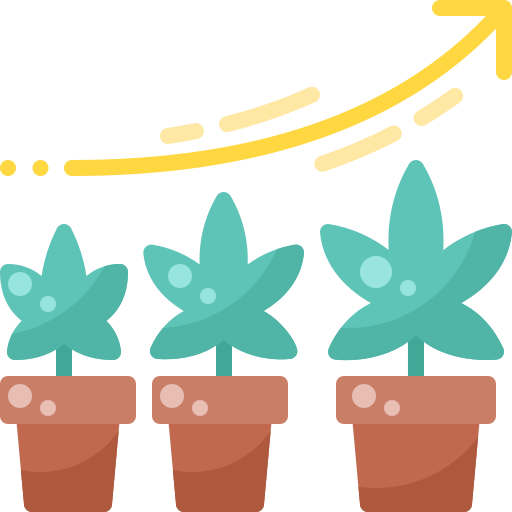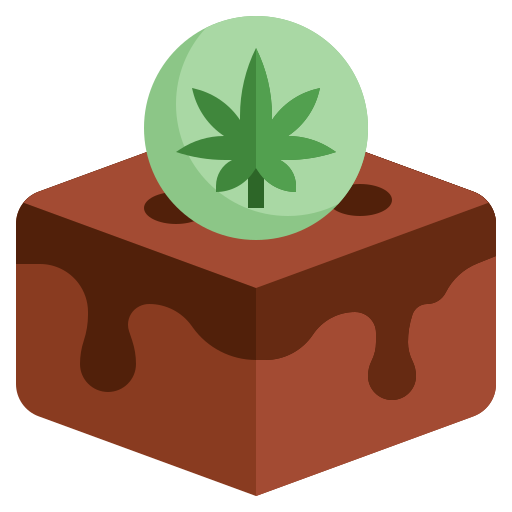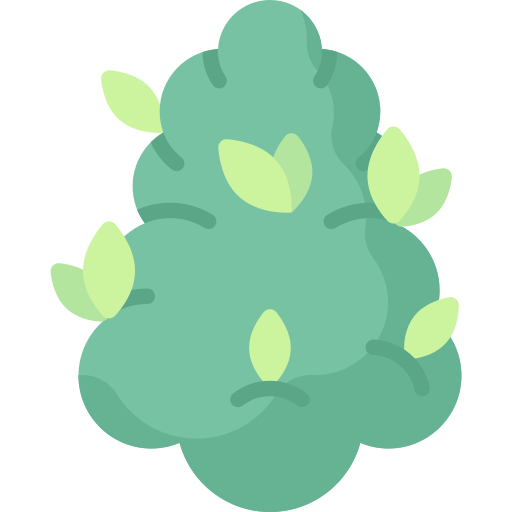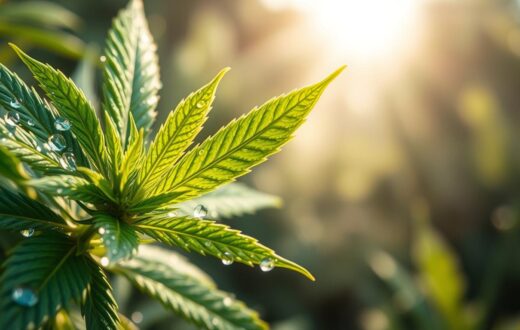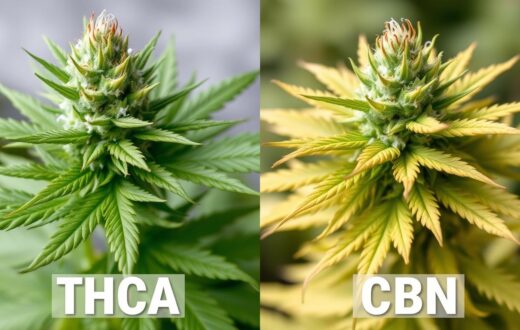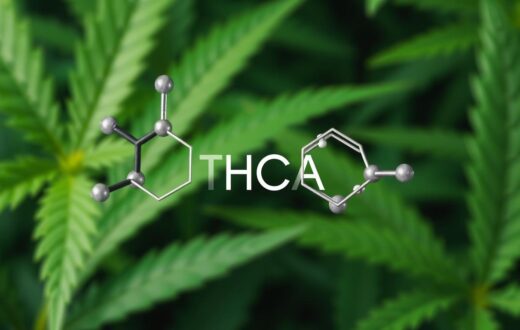Ever wondered how a cannabis compound could affect your hunger without getting you high? THCA, a non-psychoactive cannabinoid, is making waves in appetite control and weight management. It’s changing how we see cannabis’s role in our bodies, especially with hunger and metabolism.
THCA, short for tetrahydrocannabinolic acid, is found in raw cannabis plants. Unlike THC, THCA doesn’t cause a “high” but might help control hunger. Research shows it could help with hunger and even support weight loss.
Studies show cannabis users often have lower body mass indexes and smaller waists than non-users. They might eat more calories, but there’s a mystery here. Researchers are looking into how cannabinoids like THCA affect our metabolism and eating.
THCA might improve glucose tolerance and increase brown fat percentage. It’s leading to new ways to manage weight and improve metabolic health. As we learn more about THCA and its effects on hunger, we’ll see how it could change our approach to weight and health.
Understanding THCA and Its Properties
Cannabis has over 100 cannabinoids, with tetrahydrocannabinolic acid (THCA) being a key one. It’s found in raw and live cannabis plants. It’s the precursor to THC, the well-known psychoactive compound. Let’s explore what THCA is and how it differs from THC.
What is THCA?
THCA is a non-psychoactive compound found in raw cannabis. It’s the acidic form of THC, which means it won’t get you high. Research suggests THCA may have potential benefits.
Studies show it might help with inflammation, nausea, and even offer neuroprotective properties. A 2017 study found THCA demonstrated potent neuroprotective activity. This opens doors for further research.
Difference Between THCA and THC
The main difference between THCA and THC lies in their effects on the endocannabinoid system. THCA doesn’t bind well with cannabinoid receptors in the brain, making it non-psychoactive. When cannabis is heated, dried, or cured, THCA converts to THC through a process called decarboxylation.
This transformation is what gives THC its psychoactive properties. While THCA may offer benefits like relaxation and discomfort relief, it doesn’t produce the “high” associated with THC.
Understanding these differences is crucial for those exploring cannabis for therapeutic purposes. THCA’s potential benefits, coupled with its non-psychoactive nature, make it an intriguing subject for ongoing research in the field of medical cannabis.
The Role of Cannabinoids in Appetite Regulation
Cannabinoids are key in controlling our appetite and metabolism. They interact with our body’s endocannabinoid system. This interaction affects our hunger signals and energy balance.
How Cannabinoids Interact with the Body
Cannabinoids bind to specific receptors in our body. A study on Cannabis sativa with 7.8% THC and 0.5% CBD showed interesting results. Rats exposed to vaporized cannabis ate more often but in smaller amounts.
This effect was most noticeable 2 to 3 hours after exposure. The cannabis also increased food-motivated behavior without changing activity levels.
The Endocannabinoid System Explained
Our body’s endocannabinoid system keeps various functions in balance, including appetite control. It has receptors all over the body. Cannabinoids can affect these receptors, influencing hunger signals and metabolism.
For example, activating CB1 receptors in certain neurons changes brain activity related to eating. This shows how cannabinoids can impact our body’s metabolic regulation.
Different cannabinoids have different effects on appetite. While THC often increases hunger, CBD might reduce it, especially in those with higher body mass. CBD also promotes fat browning and regulates insulin. These findings highlight the complex relationship between cannabinoids and appetite control.
THCA and Its Influence on Appetite
THCA is a compound found in raw cannabis plants. It’s the precursor to THC but doesn’t get you high. Scientists are interested in its effects on appetite and metabolism.
Research Studies on THCA and Appetite
Studies show THCA might help control appetite. Animal tests found it could speed up metabolism and increase brown fat. This is good news for those looking for natural ways to lose weight.
Potential Mechanisms of THCA-Driven Appetite Changes
THCA works differently than THC in our bodies. It doesn’t activate the same receptors as THC. Instead, it might affect hunger signals in the brain.
Early studies suggest THCA could be useful for weight management. But, it’s important to remember everyone reacts differently. Always talk to a doctor before trying THCA for health benefits.
Benefits of THCA for Appetite Stimulation
THCA is a non-psychoactive part of raw cannabis plants. It shows promise in boosting appetite. This compound is key in medical cannabis, offering benefits without the “high” from THC. Let’s look at how THCA can increase appetite and its uses.
Therapeutic Uses in Medical Cannabis
Research shows THCA can help with appetite and related symptoms. It works by affecting the endocannabinoid system, especially the CB1 receptors in the brain. This might help those with appetite loss or chronic illnesses where gaining weight is important.
THCA also has anti-inflammatory and neuroprotective properties. These benefits go beyond just increasing hunger.
Anecdotal Evidence from Users
Many medical cannabis users say THCA helps with appetite and weight. They report feeling hungrier and eating better. While results vary, regular use of THCA can lead to better effects over time.
THCA can be taken in different ways, like raw cannabis, tinctures, or capsules. Finding the right dose is key for appetite stimulation.
It’s vital to talk to a healthcare provider before trying THCA. The laws about THCA differ by state and federal regulations. As research goes on, THCA’s role in medical cannabis and appetite is very promising.
Potential Side Effects of THCA Consumption
THCA is a compound found in raw cannabis plants. It’s becoming popular for its potential benefits. Unlike THC, THCA doesn’t usually cause psychoactive effects. But, it’s important to know that consuming THCA comes with risks.
Common Side Effects of Cannabinoids
THCA side effects are generally milder than THC’s. Some users might feel dizzy, have dry mouth, or slight nausea. It can also make you feel drowsy and tired, lasting a few hours.
Changes in appetite, either more or less, are common after using THCA products.
Risks for Specific Populations
Certain groups should be extra cautious with THCA. Pregnant or breastfeeding women, people with pre-existing medical conditions, and the elderly are more sensitive. Long-term use could affect memory and concentration.
Smoking THCA can harm respiratory health, like tobacco. Blood pressure can also change. Regular users might need more THCA over time.
Remember, THCA can turn into THC when heated. This can cause psychoactive effects and complicate drug tests. Always talk to a healthcare professional before using THCA products, especially if you have health concerns.
Comparing THCA with Other Cannabinoids
Cannabis has many cannabinoids, each with its own effects. Let’s see how THCA stacks up against THC and CBD, especially when it comes to appetite.
THCA vs THC: Appetite Effects
THCA is what THC comes from, found in raw cannabis. It doesn’t make you feel high like THC does. When heated, THCA turns into THC, which makes you hungry.
THC works by binding to CB1 receptors in the brain, making you want to eat more. THCA, however, might make you hungry without making you feel high. It works differently in the body, possibly helping with hunger without the psychoactive effects.
THCA vs CBD: A Different Approach
CBD is different from THCA and THC when it comes to appetite. While THCA might make you hungrier, CBD could help you eat less. This shows how complex cannabinoids are and how they affect our bodies in different ways.
Choosing between THCA, THC, and CBD for hunger control depends on what you need. As we learn more, we understand how these compounds work in our bodies and how they affect our appetite.
Consumption Methods for THCA
THCA is a non-psychoactive compound found in raw cannabis. It offers several ways to consume it. Let’s look at the best methods to add THCA to your routine while keeping its unique properties.
Raw Cannabis: The Best Source for THCA
Fresh cannabis leaves and flowers have lots of THCA. Eating raw cannabis gives you THCA without turning it into THC. Many people add raw cannabis to salads or smoothies.
This way, THCA stays the same. Heat above 220°F changes THCA into THC.
Alternatives: Edibles and Juicing
Juicing raw cannabis is a favorite way to get THCA. It keeps the compound’s integrity and is easy to drink. THCA-rich edibles, like tinctures or capsules, are another choice.
These products are made at low temperatures to keep THCA levels high. When picking how to use THCA, remember it doesn’t get you high like THC. It’s studied for its anti-inflammatory and neuroprotective effects. Whether you choose raw cannabis, juicing, or edibles, each method offers a unique way to enjoy THCA’s benefits.
Legal Status of THCA in the USA
The legal status of THCA in the USA is complex. THCA is a non-psychoactive compound found in raw cannabis. It falls under different regulations than THC. The 2018 Farm Bill made THCA from hemp legal, as long as it has less than 0.3% THC.
This has opened up new possibilities for medical cannabis patients and researchers alike.
Federal Regulations and State Laws
At the federal level, THCA is not specifically scheduled. Yet, its legal status can change if it’s intended for human consumption as a precursor to THC. State laws vary widely.
Some states have embraced medical cannabis programs that include THCA-rich products. Others maintain stricter regulations. This patchwork of laws creates a challenging landscape for users and providers of THCA products.
Implications for Medical Use
For medical use, THCA’s legal status often aligns with state medical cannabis laws. THCA is believed to have anti-inflammatory, neuroprotective, and antiemetic properties. These potential benefits make it an attractive option for patients seeking relief without psychoactive effects.
Patients interested in using THCA for medical purposes should consult their healthcare providers and review local regulations. The legal landscape continues to evolve as more research emerges on THCA’s therapeutic potential.
THCA and Appetite in Different Demographics
THCA is a compound in raw cannabis that affects appetite differently in different groups. It’s a non-psychoactive cannabinoid that might help with appetite issues without causing a high. Let’s look at how THCA impacts appetite in cancer patients and those with chronic illnesses.
Impact on Cancer Patients
Cancer patients often lose their appetite due to treatments like chemotherapy. THCA could be a solution for boosting appetite without the high of THC. Research shows THCA might help fight nausea and increase food intake in cancer patients.
This could lead to better nutrition and a better quality of life during recovery.
Effects on Chronic Illness Sufferers
People with chronic illnesses often find it hard to keep a healthy appetite. THCA might help by stimulating hunger and reducing nausea. Unlike THC, THCA doesn’t cause intoxication, making it safe for daily use.
Those with conditions that affect eating might find THCA helpful in managing weight and ensuring proper nutrition. As research goes on, THCA looks promising as a natural appetite aid for many health issues.
THCA in Culinary Applications
Raw cannabis is now in kitchens across America, making THCA a key part of cooking. Chefs use it to get THCA’s benefits without THC’s high. This is a big step in food innovation.
Cooking with Raw Cannabis
To keep THCA good, cooking must be done at low temperatures. Chefs add raw cannabis leaves to salads or use them as garnishes. Cold-pressed juices and smoothies are also popular for THCA, offering a new way to enjoy it.
Popular Recipes Featuring THCA
Creative cooks have made many dishes with THCA. Raw cannabis pesto is a hit, mixing cannabis leaves with basil, garlic, and olive oil. THCA-infused salad dressings add a unique taste and might help with inflammation.
For dessert lovers, raw cannabis energy balls are a treat. They mix nuts, dates, and cannabis for a healthy snack. When cooking with THCA, remember it tastes strong. Start with small amounts and adjust flavors to taste. Always use legal cannabis and check local laws before cooking with THCA.
Ongoing Research and Future Directions
Research on THCA is moving fast, showing great promise for controlling hunger and treating diseases. Scientists are studying how this non-psychoactive compound affects hunger and metabolism.
Current Studies on THCA and Appetite
Studies are now looking into THCA’s role in managing weight. Animal tests show it might stop weight gain and boost metabolism. This could be a big step forward for treating obesity.
About 38% of young adults aged 18-29 use cannabis, making it crucial to understand THCA’s effects.
Potential for New Therapeutic Applications
THCA’s lack of psychoactive effects makes it a promising candidate for new treatments. It could help with appetite loss in diseases like cancer and HIV. Over 60% of cancer patients already use cannabis to ease symptoms.
Future studies might look into how THCA activates brown fat. This could change how we manage weight.
As research on THCA continues, we might see new uses for it in medicine. It could help with digestive issues and even epilepsy. With more interest in cannabis-based treatments, THCA could play a big role in future therapies.
Conclusion: The Importance of THCA and Appetite
THCA is key in controlling hunger without the high feeling THC gives. It’s great for those wanting cannabis benefits without the psychoactive effects. THCA works with our body’s endocannabinoid system, offering a natural way to manage hunger and metabolism.
Summary of Key Findings
Studies show THCA might boost appetite and improve metabolic health. It could also help with conditions like arthritis and inflammatory bowel disease. Plus, it might protect against Alzheimer’s and Parkinson’s, showing its wide health benefits.
Encouraging Responsible Usage
Using THCA for hunger issues requires careful steps. Always talk to a healthcare provider and know the laws in your area. Remember, THCA’s legal status changes, so stay updated.
Quality is also important. Choose THCA flower from licensed growers that follow federal rules. This way, we can safely enjoy THCA’s benefits while avoiding risks.
Disclaimer: Information and Sources
We’re excited to share our knowledge about THCA and its potential effects on appetite. But let’s be clear – this isn’t medical advice. Our goal is to provide you with accurate thca information based on current cannabis research.
Educational Purpose of the Content
This article aims to educate you about THCA, a non-psychoactive cannabinoid found in raw cannabis plants. We’ve explored its interaction with the body’s endocannabinoid system and potential benefits like reducing inflammation and regulating appetite. Remember, while THCA flower offers therapeutic benefits, it may have side effects like mild digestive discomfort or allergic reactions.
Importance of Sourcing Reliable Information
When it comes to cannabis and health, reliable sources are key. We base our content on peer-reviewed studies and reputable medical journals. For instance, research on THCV suggests it may help with weight management by decreasing appetite and increasing energy metabolism. Always consult healthcare professionals before using any cannabis-derived products, and stay informed about the latest findings in this evolving field.
